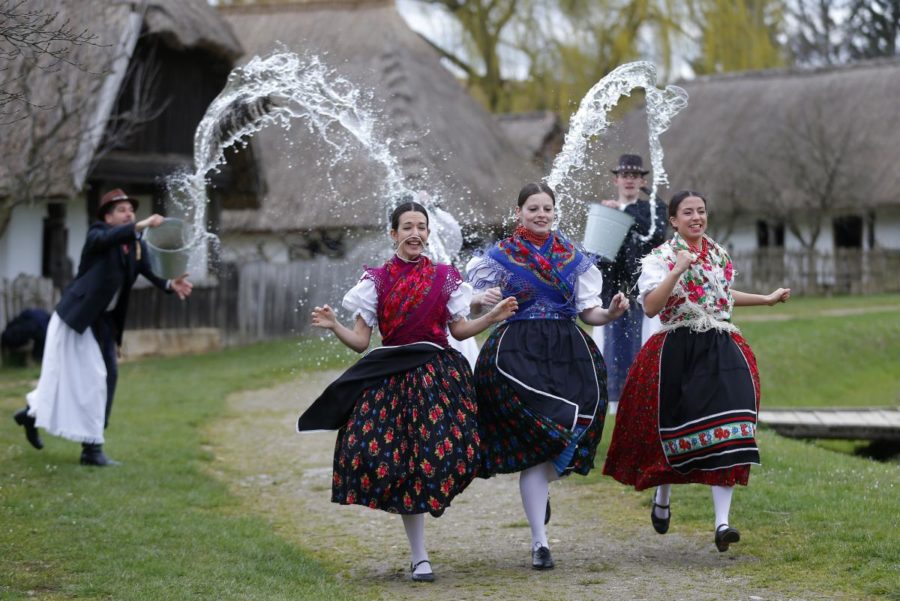Explaining Polish Holidays
May 8, 2021
In this article, I’m going to explain Polish holidays that you’ve probably never heard of!
Name Day
In many regions of Poland, Name Day is treated as more important than the birthday itself. Name Day is nothing more than a grand celebration of a holy or blessed day assigned to a specific day in the Christian calendar. A richly set table, alcohol and music are most often received with guests; The birthday person receives flowers and small gifts, e.g. chocolates or cosmetics.
Celebrating Name Day is associated with a fairly old Christian tradition for which the saints and the blessed were a very important. This custom caught on in Poland, as well as in countries such as Bulgaria, Greece and Sweden. Name day has a very strong relationship with faith, and each day of the month is assigned names belonging to specific people known from the lives of saints. For many people, this is very important.
Celebrating Name Day is just another chance to gather with family and friends and spend time together. If we look at our families, it can be noticed that in the past everyone came to celebrate name day – not only family, but also friends and neighbors. It is easy for everyone to check what day it is and whose holiday it may be.
Recently, conventions of people with the same name have also become very popular, such as the famous conventions of Krystyn, Maria and Kazimierz.
Today, the issue of naming a child is much more liberal. The annual statistics of the most popular names show that there are more and more names that are foreign to the Polish tradition. I think that the celebration of the name day associated with the figure of the patron saint will become a thing of the past.
An example of our ignorance and beliefs.
Anna – from the Hebrew word channah, which means grace and grace
Maria – from the Hebrew word mariam – to fill with joy or from the Egyptian meri-jam – beloved by God
Sophia – from Greek, from the word sophia – wisdom
Catherine – from the Greek language, from the word katharos – pure, spotless
Nicholas – from the Greek Nikólaos from the words nike – victory and laos – people. It signifies the one who has won victory for his people.
Peter – from the Greek language, from the word petros – rock. It means: steadfast as a rock.
Maciej – from the Hebrew language, from the word Mattijjah – a gift from Yahweh. It means: the one who is God’s gift.
Christopher – from Greek, from the words Christos – Christ and phero – to carry. Means: confessing Christ.
Rose – the patroness of America
Daylight-Dyngus
Honoring folk tradition, we celebrate a holiday on the second day of Easter, known as Easter Monday or Daylight-Dyngus. On this day, we celebrate folk tradition by throwing water on each other! The custom of pouring water, called dyngus, is a very old Polish tradition. Apparently, this tradition came to our lands along with German settlers, although it is not a proven fact. It is known, however, that the ancient custom dyngus is related to rain magic and known to be associated with the spring agrarian celebrations of many peoples. Interestingly enough, dyngus is also connected with cleansing practices for rituals dedicated to the dead. On Monday, young people are poured with water that is supposed to bring health and prosperity. In the past, men on daylight-dyngus poured water on the women dear to their heart. To be doused in water was a high distinction for women in the old days.
All Saints Day
All Saints’ Day, on November 1, is celebrated by people coming to cemeteries to pray for their dead loved ones.
The holiday is an expression of remembrance, devotion and respect to the deceased. It is a day off from work, as well as opportunity to visit the family, because these graves are often located in the hometown and visits require visits. Autumn flower arrangements and candles are placed on the graves to celebrate this day.
All Saints’ Day has been celebrated in the Catholic Church since the 9th century. It was appointed on November 1 by Pope Gregory IV in 837. On this day, the Church remembers not only officially recognized saints, i.e. beatified and canonized ones, but also all faithful deceased whose lives were marked by holiness. The Church sees in them her intercessors with God and examples to follow.
I hope you enjoyed reading about these holidays!



